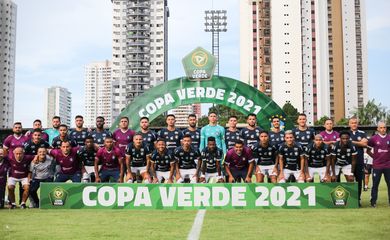Sustainable football cup delivers certified wood trophies

The final of Copa Verde, a sustainable football competition organized by the Brazilian Football Confederation (CBF) and the Forest Stewardship Council (FSC Brasil), was won by Remo, who beat Vila Nova on penalties by scoring 4-2. The match was held yesterday (11), at Estádio Evandro Almeida, Baenão, in Belém.

The competition was previously called Copa Verde because it brought together teams from the North and Center-West regions, the Federal District and Espírito Santo, but it only gained sustainability and environmental characteristics from 2016 onwards, which was the first year in which the trophies given to the winners – best team and best player in the match – were made from FSC-certified native wood. The trophies are produced by artisans from Movelaria Anambé, a community enterprise managed by the Mixed Cooperative of the Tapajós National Forest (Coomflona), in Pará, and conceived by designers Guido Guedes and Alessandra Delgado. The best player this year was Roni, from Remo.
zero carbon
In 2016, Copa Verde became the first zero carbon competition in Brazilian football and has already offset more than a thousand tons of carbon by planting, in the Xingu region alone, 5 thousand trees under an agroforestry system. In this year's edition, another 210 tons of CO2 will be offset and 914 trees will be planted in Altamira (PA).
The competition has already removed from the environment more than five tons of PET bottles, the equivalent of 200 thousand bottles. “Football is a powerful tool for education for sustainability”, says Carlos Henrique Rodrigues Alves, sustainability consultant for the Brazilian Football Confederation (CBF), adding that in all, more than a hundred scavengers were involved, generating income for these families.”
The champion of Copa Verde, the Remo team, also won R$ 150,000 and a place in the third round of the Copa do Brasil, which should take place from March 2022. This season, the total value of CBF awards in the championship reached R$1.5 million. All teams received a financial incentive from the first phase, which for many of them is extremely significant.
Text translated using artificial intelligence.






